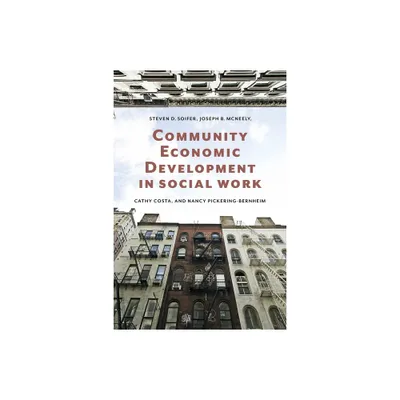Home
Social Work and Ethnicity
Loading Inventory...
Barnes and Noble
Social Work and Ethnicity
Current price: $140.00


Barnes and Noble
Social Work and Ethnicity
Current price: $140.00
Loading Inventory...
Size: Hardcover
*Product Information may vary - to confirm product availability, pricing, and additional information please contact Barnes and Noble
Originally published in 1982
Social Work and Ethnicity
was the first purpose-written text for social work students, administrators and practitioners designed to prepare them conceptually and practically for work in Britain’s established ethnic minority communities. Much more than the vicissitudes of immigration now had to be considered: this book discusses social work’s response to chronic racial discrimination and disadvantage and the hazards and advantages of taking ethnicity into account in service delivery. Emphasised throughout is the role of the social services in promoting good race relations and a better deal for black people.
Social Work and Ethnicity is based on research carried out by Mrs Cheetham and sponsored by the DHSS to identify the major concerns of social workers with ethnic minority clients and to study the development of relevant services in Britain and the USA. The contributing authors are mainly practitioners and come from a wide variety of ethnic backgrounds; in fact, this is the first book on social work to be published in Britain to which a substantial contribution has been made by black writers. The specially commissioned contributions discuss the fundamental questions of principle in giving special consideration to ethnicity and underline the implications for practice. In particular, the lessons which Britain can learn from American experience are reviewed.
The book opens with a discussion of political and ethical questions; the problems of assessing need and monitoring services are then examined. This is followed by several chapters on the special needs of various ethnic minority client groups, particularly children and young people, who now deserve priority attention. The tricky issue of ethnic matching is discussed, so too are the different methods of developing services which are appropriate to ethnic minority needs and aspirations. Recruitment, training and education for work in a multi-racial society are subjects for several chapters and the book concludes with the experiences of two ethnic minority social workers.
This book is a re-issue originally published in 1982. The language used and assumptions made are a reflection of its era and no offence is meant by the Publishers to any reader by this re-publication.
Social Work and Ethnicity
was the first purpose-written text for social work students, administrators and practitioners designed to prepare them conceptually and practically for work in Britain’s established ethnic minority communities. Much more than the vicissitudes of immigration now had to be considered: this book discusses social work’s response to chronic racial discrimination and disadvantage and the hazards and advantages of taking ethnicity into account in service delivery. Emphasised throughout is the role of the social services in promoting good race relations and a better deal for black people.
Social Work and Ethnicity is based on research carried out by Mrs Cheetham and sponsored by the DHSS to identify the major concerns of social workers with ethnic minority clients and to study the development of relevant services in Britain and the USA. The contributing authors are mainly practitioners and come from a wide variety of ethnic backgrounds; in fact, this is the first book on social work to be published in Britain to which a substantial contribution has been made by black writers. The specially commissioned contributions discuss the fundamental questions of principle in giving special consideration to ethnicity and underline the implications for practice. In particular, the lessons which Britain can learn from American experience are reviewed.
The book opens with a discussion of political and ethical questions; the problems of assessing need and monitoring services are then examined. This is followed by several chapters on the special needs of various ethnic minority client groups, particularly children and young people, who now deserve priority attention. The tricky issue of ethnic matching is discussed, so too are the different methods of developing services which are appropriate to ethnic minority needs and aspirations. Recruitment, training and education for work in a multi-racial society are subjects for several chapters and the book concludes with the experiences of two ethnic minority social workers.
This book is a re-issue originally published in 1982. The language used and assumptions made are a reflection of its era and no offence is meant by the Publishers to any reader by this re-publication.


















